Ashleys Must-Read Science Fiction #2
Explore Ashley's top science fiction book picks with 'Ashleys Must-Read Science Fiction #2'—curated list of captivating reads for every sci-fi enthusiast!

Book
Solaris
by Stanisław Lem
Kris Kelvin lands on the space station Solaris only to face a cruel miracle.
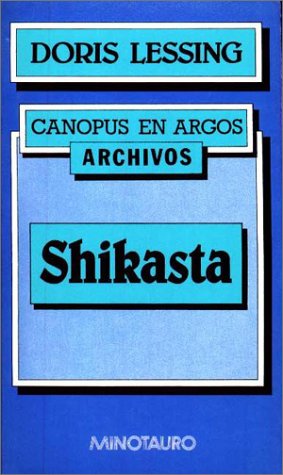


Book
Out of the Silent Planet
by C.S. Lewis
The first book in C. S. Lewis's acclaimed Space Trilogy, which continues with Perelandra and That Hideous Strength, Out of the Silent Planet begins the adventures of the remarkable Dr. Ransom. Here, that estimable man is abducted by a megalomaniacal physicist and his accomplice and taken via spaceship to the red planet of Malacandra. The two men are in need of a human sacrifice, and Dr. Ransom would seem to fit the bill. Once on the planet, however, Ransom eludes his captors, risking his life and his chances of returning to Earth, becoming a stranger in a land that is enchanting in its difference from Earth and instructive in its similarity. First published in 1943, Out of the Silent Planet remains a mysterious and suspenseful tour de force.



Book
A Canticle for Leibowitz
by Walter M. Miller
Winner of the 1961 Hugo Award for Best Novel and widely considered one of the most accomplished, powerful, and enduring classics of modern speculative fiction, Walter M. Miller, Jr.'s A Canticle for Leibowitz is a true landmark of twentieth-century literature -- a chilling and still-provocative look at a post-apocalyptic future. In a nightmarish ruined world slowly awakening to the light after sleeping in darkness, the infant rediscoveries of science are secretly nourished by cloistered monks dedicated to the study and preservation of the relics and writings of the blessed Saint Isaac Leibowitz. From here the story spans centuries of ignorance, violence, and barbarism, viewing through a sharp, satirical eye the relentless progression of a human race damned by its inherent humanness to recelebrate its grand foibles and repeat its grievous mistakes. Seriously funny, stunning, and tragic, eternally fresh, imaginative, and altogether remarkable, A Canticle for Leibowitz retains its ability to enthrall and amaze. It is now, as it always has been, a masterpiece.

Book
Ringworld
by Larry Niven
Winner of the Hugo and Nebula Awards for best novel Four travelers come to the ringworld. . . Louis Wu: human and old; bored with having lived too fully for far too many years. Seeking a challenge, and all too capable of handling it. Nessus: a trembling coward, a puppeteer with a built-in survival pattern of nonviolence. Except that this particular puppeteer is insane. Teela Brown: human; a wide-eyed youngster with no allegiances, no experience, no abilities. And all the luck in the world. Speaker-To-Animals: kzin; large, orange-furred, and carnivorous. And one of the most savage life-forms known in the galaxy. Why did these disparate individuals come together? How could they possibly function together? And where, in the name of anything sane, were they headed?
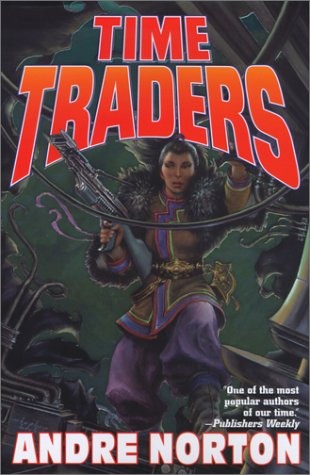


Book
The Narrative of Arthur Gordon Pym of Nantucket and Related Tales
by Edgar Allan Poe
And now I found these fancies creating their own realities, and all imagined horrors crowding upon me in fact'. The Narrative of Arthur Gordon Pym is an archetypal American story of escape from home and family which traces a young man's rite of passage through a series of terrible brushes with death during a fateful sea voyage. But it also goes much deeper, as Pym encounters various interpretative dilemmas, at last leaving the reader with a broken-off ending that defies solution. Apart from its violence and mystery, the tale calls attention to the act of writing and to the problem of representing truth. Layer upon layer of elaborate hoaxes include its author's own role of posing as ghost-writer of the narrative; Pym - his only novel - has become the key text for our understanding of Poe. This edition offers eight short tales which are linked to Pym by their treatment of persistent themes - fantastic voyages, gigantic whirlpools, and premature burials - or by their ironic commentary on Poe's mystification of his readers. ABOUT THE SERIES: For over 100 years Oxford World's Classics has made available the widest range of literature from around the globe. Each affordable volume reflects Oxford's commitment to scholarship, providing the most accurate text plus a wealth of other valuable features, including expert introductions by leading authorities, helpful notes to clarify the text, up-to-date bibliographies for further study, and much more.

Book
Inverted World
by Christopher Priest
Featured in Science Fiction: The Best 100 Novels Winner of the British Science Fiction Award Nominated for the Hugo Award The “devilishly entertaining” masterpiece of hard science fiction, set in a city moving through a strange, dystopian world—from the multi-award-winning author of The Prestige (Time Out New York) The city is winched along tracks through a devastated land full of hostile tribes. Rails must be freshly laid ahead of the city and carefully removed in its wake. Rivers and mountains present nearly insurmountable challenges to the ingenuity of the city’s engineers. But if the city does not move, it will fall farther and farther behind the “optimum” into the crushing gravitational field that has transformed life on Earth. The only alternative to progress is death. The secret directorate that governs the city makes sure that its inhabitants know nothing of this. Raised in common in crèches, nurtured on synthetic food, prevented above all from venturing outside the closed circuit of the city, they are carefully sheltered from the dire necessities that have come to define human existence. And yet the city is in crisis. The people are growing restive, the population is dwindling, and the rulers know that, for all their efforts, slowly but surely the city is slipping ever farther behind the optimum. Helward Mann is a member of the city’s elite. Better than anyone, he knows how tenuous is the city’s continued existence. But the world—he is about to discover—is infinitely stranger than the strange world he believes he knows so well.



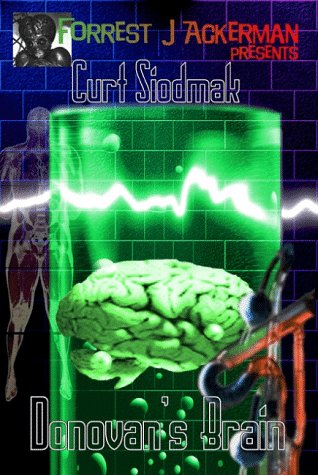


Book
Last and First Men
by Olaf Stapledon
"No book before or since has ever had such an impact upon my imagination," declared 2001 author Arthur C. Clarke of this masterpiece of science fiction. An imaginative, ambitious history of humanity's future that spans billions of years, this 1930 epic abounds in prescient speculations. A must-read for scholars of the genre.

Book
More Than Human
by Theodore Sturgeon
In this genre-bending novel—among the first to have launched sci-fi into the arena of literature—one of the great imaginers of the twentieth century tells a story as mind-blowing as any controlled substance and as affecting as a glimpse into a stranger's soul. There's Lone, the simpleton who can hear other people's thoughts and make a man blow his brains out just by looking at him. There's Janie, who moves things without touching them, and there are the teleporting twins, who can travel ten feet or ten miles. There's Baby, who invented an antigravity engine while still in the cradle, and Gerry, who has everything it takes to run the world except for a conscience. Separately, they are talented freaks. Together, they compose a single organism that may represent the next step in evolution, and the final chapter in the history of the human race. As the protagonists of More Than Human struggle to find out who they are and whether they are meant to help humanity or destroy it, Theodore Sturgeon explores questions of power and morality, individuality and belonging, with suspense, pathos, and a lyricism rarely seen in science fiction. Winner of the Hugo, Nebula, and International Fantasy Awards

Book
Slan
by Alfred Elton Van Vogt
After escaping extermination by the humans, young Jommy Cross searches for th meaning of the Slans' great mental superiority.

Book
Journey to the Center of the Earth
by Jules Verne
Verne takes young readers on one of the most incredible journeys ever imagined--from Icelands frozen tundra far down into fantastic underground prehistoric worlds and back up again through the fires of an erupting volcano--in this unabridged edition of his classic novel. Illustrations.
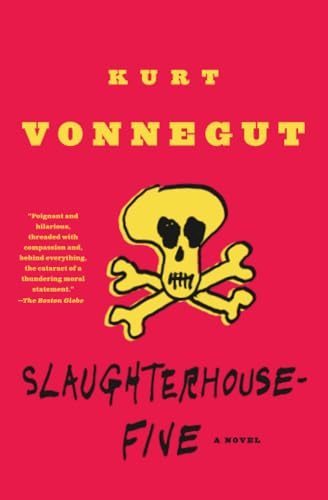
Book
Slaughterhouse-Five
by Kurt Vonnegut
Kurt Vonnegut’s masterpiece, Slaughterhouse-Five is “a desperate, painfully honest attempt to confront the monstrous crimes of the twentieth century” (Time). Selected by the Modern Library as one of the 100 best novels of all time • One of The Atlantic’s Great American Novels of the Past 100 Years Slaughterhouse-Five, an American classic, is one of the world’s great antiwar books. Centering on the infamous World War II firebombing of Dresden, the novel is the result of what Kurt Vonnegut described as a twenty-three-year struggle to write a book about what he had witnessed as an American prisoner of war. It combines historical fiction, science fiction, autobiography, and satire in an account of the life of Billy Pilgrim, a barber’s son turned draftee turned optometrist turned alien abductee. As Vonnegut had, Billy experiences the destruction of Dresden as a POW. Unlike Vonnegut, he experiences time travel, or coming “unstuck in time.” An instant bestseller, Slaughterhouse-Five made Kurt Vonnegut a cult hero in American literature, a reputation that only strengthened over time, despite his being banned and censored by some libraries and schools for content and language. But it was precisely those elements of Vonnegut’s writing—the political edginess, the genre-bending inventiveness, the frank violence, the transgressive wit—that have inspired generations of readers not just to look differently at the world around them but to find the confidence to say something about it. Authors as wide-ranging as Norman Mailer, John Irving, Michael Crichton, Tim O’Brien, Margaret Atwood, Elizabeth Strout, David Sedaris, Jennifer Egan, and J. K. Rowling have all found inspiration in Vonnegut’s words. Jonathan Safran Foer has described Vonnegut as “the kind of writer who made people—young people especially—want to write.” George Saunders has declared Vonnegut to be “the great, urgent, passionate American writer of our century, who offers us . . . a model of the kind of compassionate thinking that might yet save us from ourselves.” More than fifty years after its initial publication at the height of the Vietnam War, Vonnegut’s portrayal of political disillusionment, PTSD, and postwar anxiety feels as relevant, darkly humorous, and profoundly affecting as ever, an enduring beacon through our own era’s uncertainties.
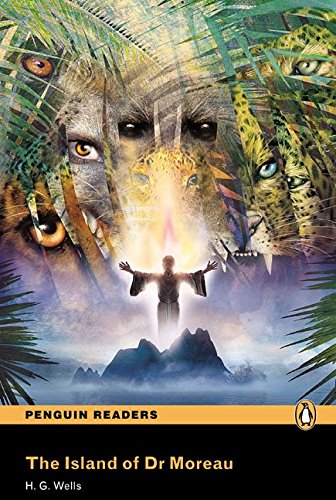


Book
The Day of the Triffids
by John Wyndham
Explores the timeless tale of Earth's survival against alien forces (man-eating plants) and blinding meteor showers.